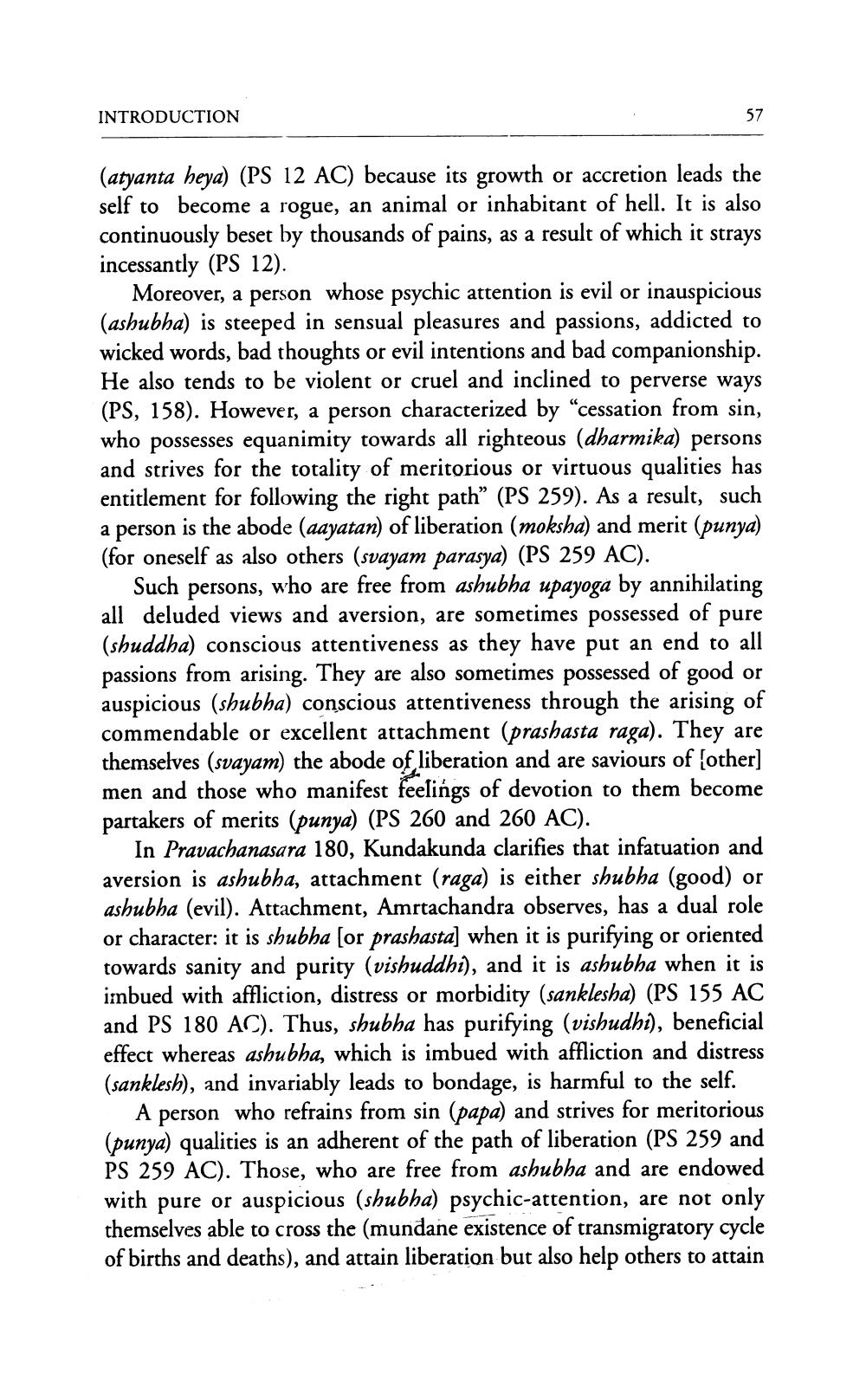________________
INTRODUCTION
(atyanta heya) (PS 12 AC) because its growth or accretion leads the self to become a rogue, an animal or inhabitant of hell. It is also continuously beset by thousands of pains, as a result of which it strays incessantly (PS 12).
Moreover, a person whose psychic attention is evil or inauspicious (ashubha) is steeped in sensual pleasures and passions, addicted to wicked words, bad thoughts or evil intentions and bad companionship. He also tends to be violent or cruel and inclined to perverse ways (PS, 158). However, a person characterized by “cessation from sin, who possesses equanimity towards all righteous (dharmika) persons and strives for the totality of meritorious or virtuous qualities has entitlement for following the right path” (PS 259). As a result, such a person is the abode (aayatan) of liberation (moksha) and merit (punya) (for oneself as also others (svayam parasya) (PS 259 AC).
Such persons, who are free from ashubha upayoga by annihilating all deluded views and aversion, are sometimes possessed of pure (shuddha) conscious attentiveness as they have put an end to all passions from arising. They are also sometimes possessed of good or auspicious (shubha) conscious attentiveness through the arising of commendable or excellent attachment (prashasta raga). They are themselves (svayam) the abode of liberation and are saviours of other] men and those who manifest feelings of devotion to them become partakers of merits (punya) (PS 260 and 260 AC).
In Pravachanasara 180, Kundakunda clarifies that infatuation and aversion is ashubha, attachment (raga) is either shubha (good) or ashubha (evil). Attachment, Amrtachandra observes, has a dual role or character: it is shubha (or prashasta] when it is purifying or oriented towards sanity and purity (vishuddhi), and it is ashubha when it is imbued with affliction, distress or morbidity (sanklesha) (PS 155 AC and PS 180 AC). Thus, shubha has purifying (vishudhi), beneficial effect whereas ashubha, which is imbued with affliction and distress (sanklesh), and invariably leads to bondage, is harmful to the self.
A person who refrains from sin (papa) and strives for meritorious (punya) qualities is an adherent of the path of liberation (PS 259 and PS 259 AC). Those, who are free from ashubha and are endowed with pure or auspicious (shubha) psychic-attention, are not only themselves able to cross the (mundane existence of transmigratory cycle of births and deaths), and attain liberation but also help others to attain




